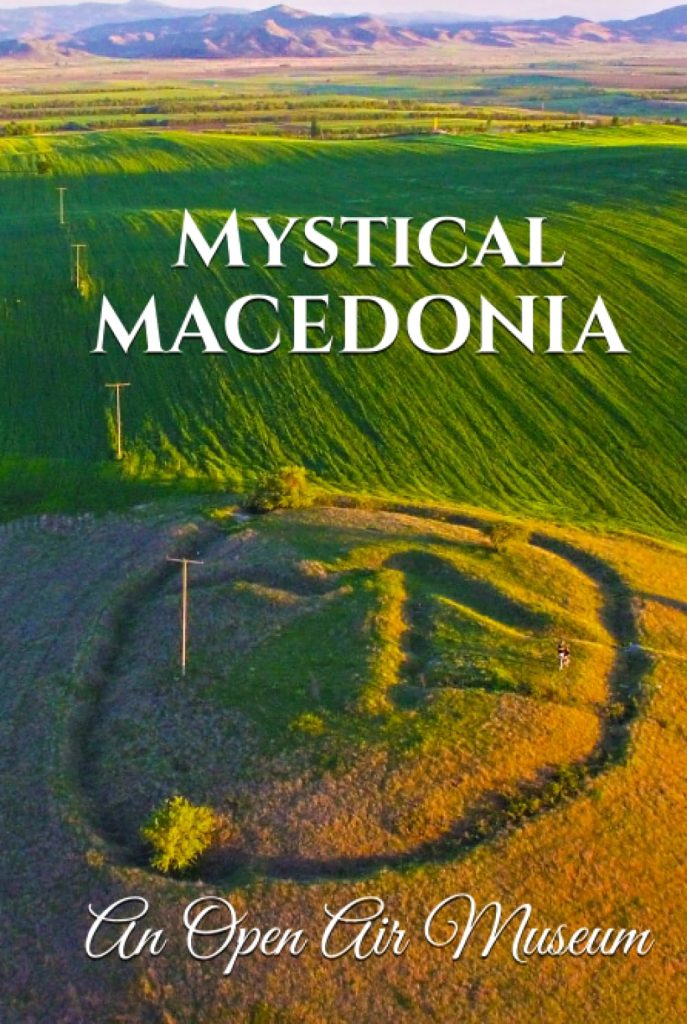from the book ALEXANDER OF MACEDON: THE GREATEST KING OF ALL TIME, A STORY FROM PAEONIA
Meanwhile, in Athens, Demosthenes taught the citizens not only to hate him, but also to curse Philip the King of Macedon and the entire Macedonian nation. Alexander’s courage was shown precisely against those who had the most derogatory words about the Macedonians. The Battle of Chaeronea is an event that was not only remembered by history, but is also retold today. The protection of the wounded Philip by his son Alexander, the determination of the heir to the Macedonian kingdom and the fortitude recognized by the most experienced generals at the height of the battle led to a great victory for Macedonia. According to some historians, the great victory of the Macedonians happened on August 2, 2360 years ago. After this battle, the so-called League of Corinth was formed, which remained an example of unification on a regional level that was complemented on a world level by the inclusion of Sparta and the successes of Alexander and his army. Philip’s military endeavour was complemented by excellent diplomacy and preparations for the great campaign began to be announced. The Macedonians went east, not the Hellenes. The Macedonian state was not only the largest military force in Europe, but also a centre for the development of education, medicine and other sciences and a nursery for artists who created works that cannot be copied to this day. A Macedonian kingdom that built cities and ports on three continents and spread Macedonian culture all over the world. In the time of Philip of Macedon and his son Alexander, there was no state called Greece, nor was there any state called Hellas. There were disunited and quarrelling city-states that were in constant mutual conflicts for centuries. The Macedonians’ affiliation to the so-called Heleni is categorically rejected not only by modern historians but also in ancient records. The city-states themselves fell under the cunning skills of Philip, who, manipulating them, laid the foundations of the well-known “divide and rule” policy. It is often said that Philip and Alexander supposedly had to be good to Athens and other cities because Macedonia had no ships. However, it is noted that already in 334 BC Alexander disbanded the fleet of the city-states. The infantry troops from the city-states did not participate in any major battles in Alexander the Great’s campaign. Many representatives of the so-called “glorious Hellas and great Greece” fought on the side of Persia, against Macedonia. The city-states tried to stand out as a “higher race than the Macedonian barbarians”. Traitors and conspirators who never missed an opportunity for intrigues and scheming, from early antiquity to this day. Even today. When Philip was killed in 336 BC, like many kings and emperors before him, the citizens of the city-states not only rejoiced at the death of the Macedonian ruler, but also propagated that the plans for the campaign would supposedly be stopped. Only few people in Athens believed that the heir would uphold the kingdom created by his father. Their arrogance and disobedience were cruelly punished for the second time by Alexander, again in Thebes, after which it was clear to everyone about the strength of the Macedonian kingdom.
Historians have noted that some of the Macedonians had the opportunity to be included in the Friends of the Emperor and Friends of Alexander. Allowing selected Macedonians to be in close proximity to the ruler was a tradition that Alexander inherited from his father Philip. And in his time there were Friends of the King and Friends of Philip. Unlike the city-states that did not have their own army, but had mercenaries, in the Macedonian state the army was hierarchically organized, militarily and ritually prepared and motivated not by money, but by an ideal. Macedonia was too small for Alexander, since he as a child knew that he could conquer the world. Alexander’s coronation was in accordance with all ancient Macedonian traditions. The king of Macedonia continued the preparations started by his father. He left Macedonia to conquer the world. He was not the first one from these parts to move on. Dion’s march was an old story of great significance. The Trojan War told a little closer history to the time of Alexander, and the troubles with the Persian Empire in the previous centuries were the reason for the attempt at unification. Confirmation of the hiding of the Macedonian language from the official history is also found in the official terms for objects, events, armies and toponyms from antiquity. The campaign of the Macedonians was accompanied by scientists, doctors, philosophers and entire caravans. The Macedonian Empire, which Emperor Alexander managed to spread to three continents in just one decade, left an invaluable cultural legacy to the entire human civilization. Almost every modern country that is located in the territory that was ruled by Alexander the Great has preserved archaeological sites, writings and artefacts from the great Macedonian empire. In less than 13 years, the King of Macedonia managed to conquer not only the Persian Empire, but also many other empires and kingdoms. Those who were civilizationally prepared to belong to the former one-world empire that was resurrected with Alexander’s empire, were expecting him even before he arrived in their regions, they even invited him. The cities and the dark forest and mountain regions of Asia in which there were remnants of the former actions of the ancestors of the local inhabitants against the ancestors of the Macedonians, especially those who showed resistance, suffered the cruelty of Alexander the Great and his great army. A phalanx of chosen heroes, led by Macedonians who were imbued with the idea and ideal of the Macedonian Empire. Neither Greeks, nor Hellenes, but Macedonians for whom Philip created a kingdom, and Alexander an empire.
ALL RIGHTS RESERVED



1 Comment